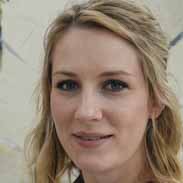Development Geography Flashcards, test questions and answers
Discover flashcards, test exam answers, and assignments to help you learn more about Development Geography and other subjects. Don’t miss the chance to use them for more effective college education. Use our database of questions and answers on Development Geography and get quick solutions for your test.
What is Development Geography?
Development Geography is an interdisciplinary field of study that examines the economic and social development of countries and regions around the world. Development geography seeks to understand the patterns, causes, and effects of global poverty and inequality by examining the physical, political, cultural, environmental and economic factors involved in a region’s development. This type of geographical work can also help inform policy makers as they make decisions about how best to improve infrastructure or allocate resources in order to promote economic growth.Development geographers focus on understanding why some areas are more successful than others at achieving certain goals such as reducing extreme poverty or improving health outcomes. By looking at different aspects of development such as population density, access to resources like water or electricity, availability of transportation networks geographers seek out possible explanations for observed successes or failures based upon their data analysis. For example, if a particular area lacks investment in infrastructure such as roads and sanitation systems it could be indicative that this is inhibiting its chances for success in terms of meeting other developmental goals related to healthcare provision or educational attainment rates. Similarly these same areas may have inadequate access to markets which could hinder opportunities for income generation activities creating further roadblocks towards progress in other developmental goals. In addition to analyzing existing conditions within a region geographers will often use various forms of modeling techniques such as predictive analytics or scenario planning exercises which allow them not only diagnose current issues but also forecast potential future trajectories under different scenarios should policies change drastically. In this way geographers are able to provide valuable advice regarding where changes might be most effective when trying to accomplish specific objectives related (or unrelated) to regional growth initiatives.























